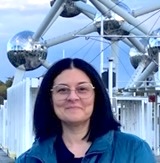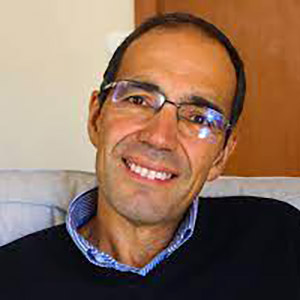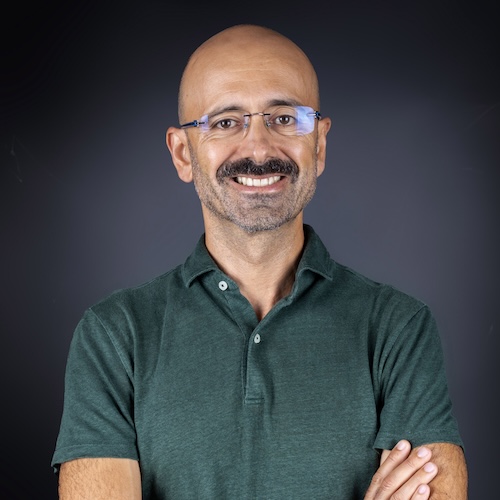WIRE COST Action
2nd Training School
“Collaboration for change: Enhancing knowledge in biorefinery technologies”
June 30th –July 2nd 2025, Faro, Portugal
Welcome to WIRE’s 2nd Training School, “Collaboration for change: Enhancing knowledge in biorefinery technologies.” This exciting event, hosted in Faro, Portugal, will bring together 20 trainees for three days of intensive learning, collaboration, and knowledge sharing.
The focus of this training school is to advance expertise in biomass transformation and biorefinery technologies, addressing key challenges and opportunities within the bioeconomy. Participants will engage with the four central Working Groups of the WIRE COST Action—Raw Materials, Biorefinery Conversion Technologies, Biorefinery Applications, and Communication and Dissemination—fostering both technical and strategic discussions aimed at enhancing innovation and sustainable solutions.
Through this collaborative environment, we aim to tackle pressing technical challenges, promote career development for early career researchers, and explore entrepreneurial opportunities in the bioeconomy sector. By connecting experts, researchers, and practitioners, this training school offers a unique platform for sharing best practices, advancing collaborative research, and contributing to the growth of a more integrated and dynamic scientific community.
Join WIRE on this journey as we harmonize knowledge, catalyze innovation, and pave the way towards a sustainable bioeconomy future!
Paulo Brito, Action Chair
Local Organizing Committee
- Jorge Semião, University of Algarve and CISCA, Portugal (jsemiao@ualg.pt)
- Nelson Sousa, University of Algarve and CISCA, Portugal (nsousa@ualg.pt)
- Gonçalo Prates, University of Algarve and IGOT, Portugal (gprates@ualg.pt)
- Rui Cruz, University of Algarve and MED, Portugal (rcruz@ualg.pt)
Training School evaluation methods here
Information on location, accomodation and transportation can be found here
Meet the trainers

Pablo J. Arauzo
Lecture 1 – Biorefinery pathways in the context of circular economy
Pablo J. Arauzo is currently employed as a research assistant in the Department of Conversion Technologies at the University of Hohenheim (Stuttgart). His research is centered on thermochemical conversion processes, with a particular emphasis on the production and application of activated carbon for gas purification, wastewater treatment, and energy storage. His research interests include the conceptual design of sustainable processes, the development of value-added products, greenhouse gas emission reduction, and integrated biorefineries.During his doctoral studies, he specialized in the scientific study of the transformation of organic matter into carbon-rich materials through the process of hydrothermal carbonization of agro-industrial biomass. He optimized this process with the objective of enhancing the properties of the resulting carbon-rich materials. Additionally, he investigated the valorization of plant-based waste into high-value platform chemicals. Presently, he functions as a postdoctoral researcher, with a focus on pyrolysis and activated carbon production from agricultural and forestry residues. His research endeavors are directed towards the optimization of these processes for potential applications in agriculture, soil improvement, and the removal of pollutants from aqueous systems.
ORCID ID : 0000-0002-5669-2400

Cecilia Mateos Pedrero
Lecture 3 – Identifying your role in the biorefinery transition
Cecilia Mateos is an experienced researcher in heterogeneous catalysis and chemical processes. She has significantly contributed to her field, authoring over 40 scientific publications and holding a patent. Cecilia earned her PhD in Chemical Engineering from the Catholic University of Louvain in 2007. In recent years, she has played a key role in advancing the development of renewable gases in Portugal, taking on the coordinator role at the BIOREF Collaborative Laboratory. She is currently a senior researcher at the Polytechnic University of Portalegre, where she combines her research activities with teaching courses on renewable gases and bioenergy.
ORCID ID : 0000-0002-8836-089X

Margarida Gonçalves
Lecture 5 – Scale-up, policy barriers & innovation in practice in biorefineries
Maria Margarida Boavida Pontes Gonçalves is an Associated Professor of DQ-FCT-NOVA, Coordinator of the Master Course in Bioenergy and Sustainable Technologies, Researcher at MEtRICS (Mechanical Engineering and Resource Sustainability Center, FCT-NOVA and UMinho) and Collaborator at VALORIZA (Research Center for the Valorization of Endogenous Resources, ESTG-IP-Portalegre). Has been supervisor or co-supervisor of 21 PhD students, 8 of which are on-going. Main research interests include valorization of biomass and wastes, carbonization, hydrothermal carbonization, pyrolysis, gasification, effluent treatment with microalgae, circular economy, and bioeconomy. She is the author of 211 publications in scientific journals and conference proceedings from which 102 papers are indexed by Scopus. She is a Member of the Editorial Board of Energies and Reviewer of various scientific journals from the areas of Biomass, Energy and Waste Valorization.
ORCID ID: 0000-0002-0940-519X

Ana Momčilović
Lecture 7 – Science communication & collaboration: Presenting for change
Ana Momčilović is a mechanical engineer and researcher focused on circular economy and sustainable waste management. She is currently a PhD candidate at the Faculty of Mechanical Engineering, University of Niš. Her dissertation addresses the development of an integrated model for organic waste management through circular economy principles. Ana holds several advanced degrees, including master’s degrees in mechanical engineering, innovation engineering, and energy efficiency, as well as a specialist degree in civil engineering with a focus on building energy performance. She is currently a lecturer at the Academy of Technical Vocational Studies in Belgrade, where she teaches courses in circular economy and waste management. Her earlier academic experience includes assistant and teaching roles at the University of Niš in subjects such as environmental protection, wastewater treatment, and solid waste management. Ana has also worked in the private sector as a business analyst in Moscow and has been involved in several national and international research projects. These include participation in COST Actions, Erasmus+, Jean Monnet Modules, and projects supported by the Serbian Ministry of Education, Science and Technological Development.
She currently serves as the Science Communication Coordinator for the COST Action CA23104 – Water4Reuse, responsible for dissemination and visibility efforts within the Action. Fluent in English and proficient in Italian, German, and Russian, Ana is dedicated to interdisciplinary research and collaborative efforts in environmental sustainability, waste valorization, and energy systems optimization.
ORCID ID: 0000-0002-1630-889X

Bojana Bajić
Lecture 2 – Technology & collaboration: The building blocks for systemic change
Prof. Dr. Bojana Bajić (PhD in Technological Engineering) is an Associate professor in Biotechnology at the Department of Biotechnology, Faculty of Technology Novi Sad, University of Novi Sad (teaching courses: Bioprocess Engineering, Bioreactors, Bioprocess Design, and Biomass as an Energy Source). Her research interests primarily focus on working on developing bioprocess solutions for the efficient utilization of agro-industrial wastes, residues, and by-products for biopolymer production, biofuels production, as well as the production of microbial biomass and bioactive bioproducts (enzymes, biopesticides, probiotics, biofertilizers, biosurfactants), and utilizes advanced software tools to model, simulate, and optimize biotechnological processes, define kinetic models, analyze material and energy balances, and perform technical and economic process analyses. Prof. Dr. Bojana Bajić participated in several international and national projects, reviews for a number of international scientific journals, and is co-author of two textbooks (Bioprocess Design and Safety at Work) for students of undergraduate and master study programs in Biotechnology at the Faculty of Technology Novi Sad.
ORCID ID: 0000-0001-9786-2376

Paulo Brito
Lecture 4 – Process design, integration & sustainability in biorefineries
Paulo Brito has a degree in Chemical Engineering with a Processes and Industry specialization, from Instituto Superior Técnico (IST, University of Lisbon, Portugal). Has a master’s degree in “Corrosion Science and Engineering” by UMIST (Manchester University) and has a PhD in Chemical Engineering (Electrochemistry, IST). He also has an MBA (INDEGISCTE). He is Principal Coordinator Professor at the Technology and Management School (ESTG) of the Polytechnic Institute of Portalegre (IPPortalegre), President of the ESTG Scientific Council and the coordinator of the institution’s research center VALORIZA – Research Center for Endogenous Resource Valorization. His main research areas are bioenergy, renewable gases, waste environmental treatments, materials’ corrosion, and galvanic energy production. He has published more than 200 works, in books, articles and conferences presentations. ORCID ID: 0000-0002-2581-4460

José Copa Rey
Lecture 6 – Techno-economic & environmental assessment tools
José Ramón Copa Rey is a mechanical engineer and researcher specialized in thermochemical conversion technologies and energy valorization of biomass and solid waste. He holds a PhD in Mechanical Engineering from São Paulo State University (UNESP) and a Postdoc in Renewable Energy, carried out jointly at UNESP and the Portalegre Polytechnic University. His research spans combustion, gasification, and pyrolysis, with over 15 scientific publications in high-impact journals and active participation in several international projects related to renewable hydrogen and sustainable energy systems. He is currently affiliated with Portalegre Polytechnic University, where he combines teaching with applied research in renewable energy.
ORCID ID : 0000-0001-7162-1398

Diogo M. F. Santos
Evaluations – Planning and working for final presentations
Diogo M.F. Santos is an Invited Assistant Professor at Instituto Superior Técnico (IST, ULisboa) and a Principal Researcher at the Center of Physics and Engineering of Advanced Materials (CeFEMA), studying electrodes and membranes for fuel cells and electrolyzers. D.M.F. Santos got his PhD degree in electrochemistry in 2009, focused on the direct borohydride fuel cell (DBFC). He did a postdoc in Chemical Engineering on hydrogen production by alkaline water electrolysis, followed by a postdoc in Materials Science & Engineering to develop cathodes for DBFCs. As an Investigador FCT in CeFEMA (2015-20), he worked on low-cost electrocatalysts for low-temperature fuel cells. D.M.F. Santos has authored over 200 publications; his current h-index is 40. Since 2020, He has been included on Stanford University’s “World’s Top 2% Scientists” list. He has presented over 90 oral communications and 80 posters at international conferences. D.M.F. Santos is a member of several scientific societies and a reviewer for over 80 scientific journals. He is the supervisor of 5 PhD students and 2 MSc students. He has completed the supervision of 1 Postdoc researcher, 1 PhD student, 28 MSc students, and 21 research interns. D.M.F. Santos is the Working Group 4: Communication and Dissemination Leader of WIRE COST Action (CA20127). His main research interests are related to electrochemical energy conversion and storage.
ORCID ID: 0000-0002-7920-2638
Who can apply?
Early-Stage Researchers (ESR) and PhD students, involved in COST Actions. Please note that applying for the training school does not automatically guarantee access to it.
Funding:
Participants affiliated to an academic institution or company from a COST Full Member Country, a COST Cooperating Member Country or from a COST Near Neighbor Country may apply for reimbursement. The exact value depends on the expected travel and accommodation costs. The maximum travel amount is 350 €, and Portugal’s daily allowance rate is 201 €.
How to apply?
- All candidates must first create an e-COST profile.
- Before applying, please carefully read the rules regarding grant eligibility and financial support in the Annotated rules for COST Actions (https://www.cost.eu/uploads/2025/02/COST-094-21-V2.0-Annotated-Rules-for-COST-Actions-Level-C.pdf).
- Apply for the grant by filling the below Google Forms, and uploading CV, motivation letter and a recommendation letter: https://docs.google.com/forms/d/e/1FAIpQLSdvaXI7EYTYForltAOEo7Y2gMdm7Mhjn_vzoxzvBlpJb9UiAg/viewform?usp=sf_link
- Participant evaluation and selection will be at the discretion of WIRE’s Core Group, considering a balance of ITC countries and gender to ensure equality.
- Candidates will receive a notification informing whether they have been accepted (grant awarded).
- Selected participants will be sent an e-COST invitation to the training school which must be acceptedprior to the event (within 15 days after reception).
Important dates
Deadline for application: April 30th, 2025
Notification of acceptance & sending of e-COST invitations: May 7th, 2025
Confirmation of participation (acceptance of e-COST invitations): May 22nd, 2025
After the training school:
- All attendees shall submit a completed online travel reimbursement request via e-COST within 15 calendar days after the end date of the training school.
- Before submitting the claim, attendees should read carefully the COST Actions’ Travel Reimbursement Rules (https://www.cost.eu/uploads/2025/04/Travel_Reimbursement_Rules_2025.pdf)
- All attendees shall upload legible copies of all invoices / receipts and relevant supporting documents onto e-COST and archive the original invoices / receipts for four (4) years after the end of the Grant Period in which the meeting takes place.
